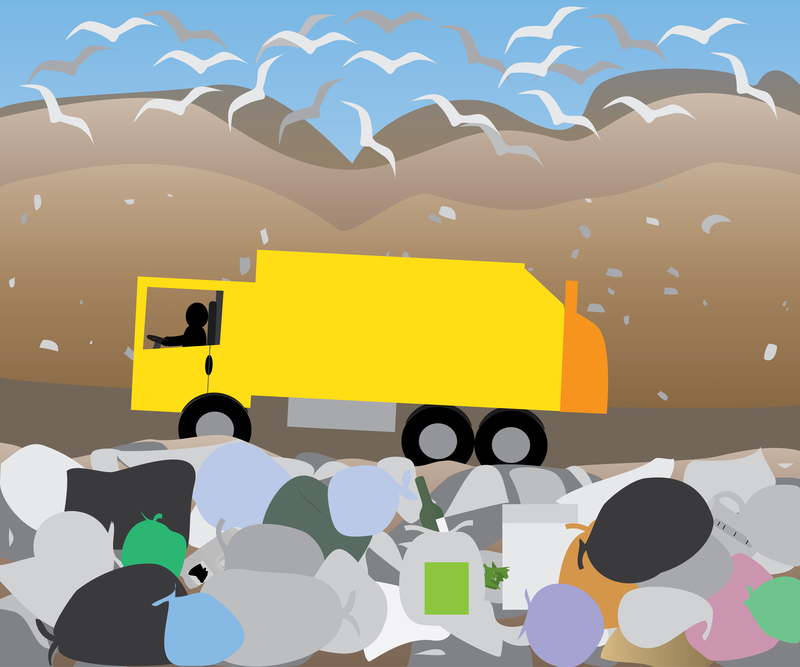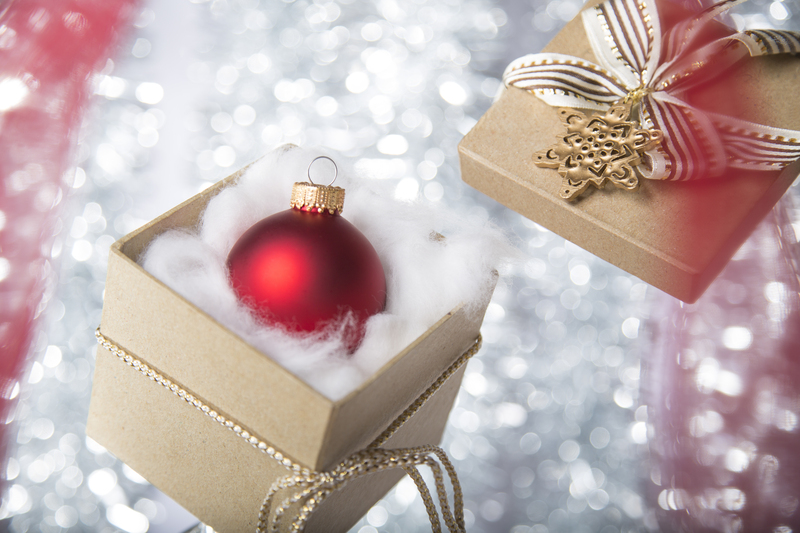Minimalist Living: Discover the Joy of Decluttering
Minimalist living has emerged as a powerful lifestyle trend that goes far beyond merely having less stuff. As people around the globe embrace the advantages of living minimally, the benefits of decluttering and intentional living are becoming impossible to ignore. In this comprehensive article, we'll explore the true heart of minimalist living, including practical decluttering tips, the psychology behind minimalism, and how this approach can boost your happiness, productivity, and overall wellbeing.

Table of Contents
- What is Minimalism?
- Benefits of Minimalist Living
- Decluttering Your Space: First Steps
- Organizing for a Minimalist Lifestyle
- Mental Health and Minimalist Habits
- Tips to Maintain Minimalist Living
- Embracing the Joy of Less
- Minimalism FAQs
What is Minimalism?
Minimalism is a lifestyle and design philosophy that encourages people to focus only on what truly matters to them. At its core, minimalist living is about intentionality - making conscious decisions about what you own, how you spend your time, and what values guide your actions. It's not about deprivation, but about liberation from the unnecessary distractions of life.
- Minimalist home: Creating a simple, clutter-free, and peaceful environment.
- Minimalist mindset: Letting go of the need to accumulate possessions for status or comfort.
- Minimalist lifestyle: Prioritizing experiences, relationships, and well-being over material goods.
This approach can be summed up as a journey towards living with less and finding happiness in simplicity. Upon adopting minimalism, many individuals discover an unexpected sense of satisfaction and freedom.
The Benefits of Minimalist Living
Choosing a minimalist lifestyle doesn't just impact the appearance of your home - it can have profound effects on every aspect of your life. Here are some of the greatest benefits of decluttering and embracing a minimalist existence:
1. Enhanced Mental Clarity
Too much clutter can overwhelm your senses and lead to stress. By simplifying your space, you make room for focus and mental peace. Many people find that they can think more clearly in a minimalist environment.
2. Increased Productivity
A decluttered home can significantly improve your ability to work and be creative. With fewer distractions and a more organized space, you'll notice your productivity soar.
3. More Time and Energy
When you reduce the number of things you own and maintain, you naturally have more time and energy for what you truly love--be it hobbies, relationships, or self-care.
4. Environmental Impact
Adopting minimalist habits often means consuming less, which can lead to a smaller environmental footprint. You'll buy fewer disposable items, reduce waste, and live more sustainably.
5. Financial Freedom
By purchasing only what you need and truly value, you can save money and avoid the clutter of unnecessary expenses. Minimalism frequently brings people closer to their financial goals.
Decluttering Your Space: First Steps
The first and often the hardest step towards minimalist living is to start decluttering. While it may sound daunting, overcoming the initial hurdle is exceedingly rewarding. Here's how you can begin your decluttering journey:
Understanding the Psychology of Clutter
Our possessions often carry emotional weight. Whether it's gifts from loved ones, sentimental items, or impulse purchases, it can be hard to let go. Recognize that letting go makes space for new experiences and greater joy.
Practical Steps to Begin Decluttering
- Set a clear goal: Define your motivation for wanting to declutter. Is it to live more simply, reduce stress, or create a more appealing home?
- Start small: Focus on one drawer or shelf at a time to avoid feeling overwhelmed.
- Sort into piles: Make separate piles for 'Keep', 'Donate/Sell', and 'Discard'.
- Ask vital questions: If you haven't used an item in the last year or it doesn't bring you joy, let it go.
- Repeat regularly: Make decluttering a habit, not a one-time task.
Organizing for a Minimalist Lifestyle
Decluttering is only half the battle. Once you've pared down your possessions, organization becomes the key to sustaining a minimalist lifestyle. Here are tips to help you organize:
Simple Storage Solutions
- Multi-functional furniture: Pieces like storage beds and ottomans help maximize your living area.
- Clear surfaces: Limit what you display on counters and tables for a visually calming effect.
- Use baskets and bins: Store similar items together and label them for easy retrieval.
Maintain Only What You Need
Let function dictate which items remain in your home. Keep only what is useful or brings genuine happiness or beauty.
Create Zones
Assign areas in your home for specific purposes (reading corner, work station, relaxation zone). This helps prevent clutter from accumulating in random places.
Mental Health and Minimalist Habits
Minimalism is more than just an aesthetic choice; it's a holistic approach with remarkable psychological benefits. Here's how minimalist living can improve your mental health:
- Reduces anxiety: Clutter is often linked with higher levels of stress and anxiety. A tidy space soothes the mind.
- Promotes mindfulness: By owning and managing less, you become more present and mindful in daily life.
- Builds confidence: Taking charge of your environment can help you feel more in control of other aspects of your life.
- Encourages gratitude: When you surround yourself only with intentional possessions, you learn to appreciate what you have.
The benefits of decluttering extend to better sleep, improved focus, and higher overall satisfaction.
Tips to Maintain Minimalist Living
Minimalist living is an ongoing lifestyle, not a one-time project. Try these tips to maintain the joy of minimalism in your everyday life:
- Adopt the one-in, one-out rule: Whenever you bring a new item home, let go of another.
- Regularly edit: Once a month, assess your drawers, closets, and storage for things that can be removed or donated.
- Be mindful of new purchases: Ask yourself if the purchase is truly necessary and if it will add long-term value.
- Invest in quality, not quantity: Choose fewer, higher-quality possessions over many disposable items.
- Digital declutter: Apply minimalist principles to your digital life by cleaning up emails, files, and social media.
Embracing the Joy of Less
- Enjoying freedom: Less clutter means more room for spontaneity and activities you love.
- Nurturing relationships: Minimalism allows you to focus more on people and less on possessions.
- Greater well-being: By prioritizing essentials, you cultivate a life of clarity, balance, and contentment.
If you're ready to unlock the power of minimalist living, remember that the process is deeply personal. It's not about having the fewest possessions, but about cherishing what truly adds meaning to your life. By decluttering and living intentionally, you'll discover the joy of less and invite more happiness and freedom into your days.
Frequently Asked Questions About Minimalism
Q: Is minimalism just about getting rid of stuff?
A: Minimalism is about much more than material possessions. It's a holistic approach that helps you align your life with your core values, focus on what matters, and cultivate intentionality in all areas.
Q: How do I deal with sentimental items while decluttering?
A: It's natural to feel attached to certain things, but remember that memories live in your heart, not in physical objects. Consider taking photos, writing memories, or keeping only the most meaningful mementos.
Q: How can minimalist living benefit families?
A: Minimalist living helps families by creating calm, organized homes, reducing stress, and fostering stronger connections. Children also learn valuable lessons about gratitude and mindfulness.
Q: Can minimalism help with anxiety or depression?
A: Many people find that a decluttered, intentional space can ease anxiety and support mental health. That said, minimalism is not a cure-all, but it can be a helpful tool in a broader mental wellness strategy.
Q: Where should I start if I feel overwhelmed?
A: Begin with a single drawer, closet, or category. Set a timer for 15 minutes and focus only on that task. Celebrate every small win along your journey.

Start Your Minimalist Living Journey Today
Minimalist living is a rewarding path of self-discovery, simplicity, and joy. Whether you're looking to declutter your home, simplify your life, or find more happiness with less, the minimalist lifestyle offers endless benefits. Take your first step today and experience the lasting satisfaction of living with intention and purpose.
The art of minimalist living is not a destination, but a continuous and fulfilling journey. Discover the joy of decluttering and create space for the things that truly make life meaningful.